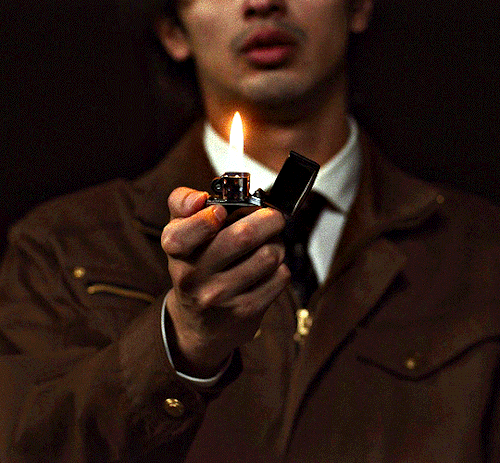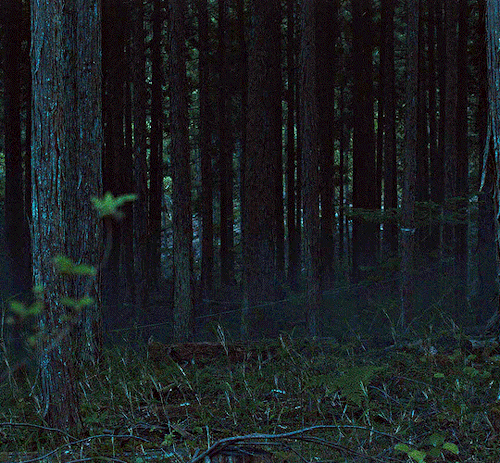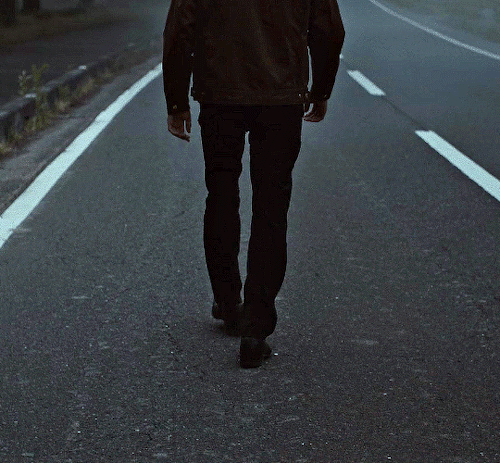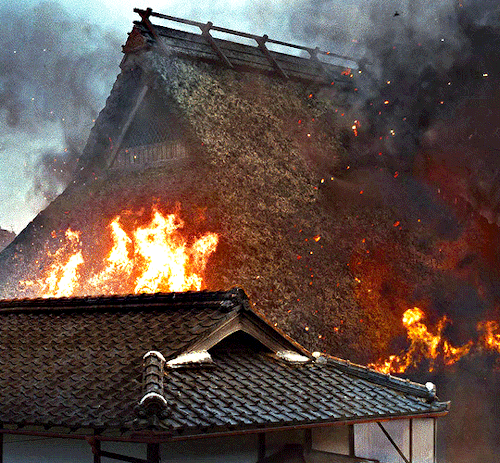I Feel Like I've Never Seen Anyone Talk About One Of The Reasons That Being Aro Is So Lonely Is That
I feel like I've never seen anyone talk about one of the reasons that being aro is so lonely is that we aren't really allowed to form deeper connections with people.
I'm not allowed to be too close to my friends because if I am then they'll read it as romantic. Their partners will think they're cheating on them with me.
I'm not allowed to touch other people in a way that's too friendly. I'm not allowed to cuddle with people. I'm not allowed to bare my heart and soul to people. I'm not allowed to hang out one-on-one with anyone. All of those things are reserved for people who aren't me. People who can't be me.
Yeah "more than friends" is stupid and friends can be just as important and close as romantic partners but what non-aro actually believes that? What non-aro would let go of their ownership of their partner for long enough to allow me to have any form of affection?
[Do not tag as ace/aroace or derail]
More Posts from Sayaosi and Others
Detachment (2011)

Shinichi Sakamoto
Downton Abbey S3E5 demonstrates how a well-written death can affect the audience beyond the screen;
Sybil was a side character for most of the show, but she had her moments to shine, especially during the war when she was working at the hospital, which is pointed out by Thomas when they hear of her death. Thomas's reaction in particular is one that stands out in terms of how well-written the scene is - it would have been easy to have him be cold about the matter, considering his insistence that he doesn't care much about their employers in earlier seasons, or to have a mild reaction of vague sadness at most, but no, Thomas, who was until now always cold and cynical, sobs. He tries to keep up his facade when Anna checks on him, tries to insist that Sybil wouldn't have cared if he had died, only to sob even more when admitting - more to himself than Anna, really - that she would have cared.
It's an especially heartbreaking scene to watch when remembering that the only other times he had previously shown this kind of desperate vulnerability were when he decided to get out of the trenches, after he figured out the scam, and - and! - after the death of Edward Courtenay, an experience he shared with Sybil. The first two can be argued to be selfish, in the roughest terms, as they are about Thomas, but the latter two and the pure grief he displays for both someone he was romantically interested in and someone he pretended not to care about speaks volumes in terms of who Sybil was, and that even after she is dead already. It's fascinating to see the scene in this light, how 'even' someone like Thomas, someone with little regard for the upper class, was touched by Sybil's life and death to such a degree that he will openly show this amount of pain and general emotion over her loss.
Alongside Thomas's, there are other particularly touching moments in this episode as well, of course, with especially the reaction of Daisy - who had been in a bad mood for the entire episode - standing out as one that shows how the news break her away from her jealousy; Mrs. Hughes referring to Sybil as "the kindest being in this house" with this barely contained sadness and, a bit later, hugging Daisy for comfort as well pushes this further, even if Mrs. Hughes has been established as having a bit of a softer side.
All of these small details just in the reactions of the servants show how well this episode and the show as a whole are written in terms of how they handle difficult emotions and especially grief. The reactions of the people around the deceased are always so much more powerful in touching the audience than the actual death itself. Wonderful writing, here the same as with the deaths of Edward, Lavinia and and William.
Baby Reindeer is a masterpiece. Anyone who can handle the content should watch it. These stories need to be told.
As much as Koisenu Futari is a show about love, or the lack thereof, it also does show how it can show up in many ways.
The focus is aromanticism and asexuality, yes, but also, we see the different points of view of the people around and how they relate to those types of love.
We have the junior, who thought that there was a spark between them and instead of dealing with the rejection and misunderstanding like a man he just... took some time off work and asked to change departments.
We have Minori (the sister) who seems to live the perfect romantic life and is following what society (and her parents) ask of her, and at the end, despite her love and her dutiful follow of those rules, she's being cheated on and breaks from what society demands (the divorce).
We have Kazu, who sees romantic love in a very weird lense (in my opinion) but slowly, while still holding his ideals, he understands that others are not necessarily like him and not only he ends up by respecting them and more or less understanding them, but he also is a (somewhat) good ally.
We have Chizuru, who does love but is lesbian. She is bound (through her love for Sakuko) to suffer because of a love that cannot be reciprocated. We see her deeply love and feel, and yet we do not see this love being satisfied.
A good point here is that the blame is not brought to Sakuko. Chizuru clearly says that she, herself, is the one to love and the one to get away because she rather have a friend live her life without having to worry about something she doesn't care about than forcing an unwanted love on her (Sakuko).
We have Sakuko's parents too, who seem to live the perfect traditional life. The mother doesn't seem too old, which would suggest that she followed the advice she gave to her daughters: marry and have children young. And through the series, she shows rejection, because aromanticism doesn't fit her understanding of life, then a slight acceptation: she still doesn't get it and wishes for Sakuko to marry and have children, but she also understands that cutting ties with her daughter for not accepting her making her own choices is stupid at worse, foolish at best, especially since at the end she just wants her daughter to be happy.
Last but not least, we have Takahashi. He is the textbook of "older queer" as in he knows where he stands, he understands how he feels about what, he has a way to show and share his experience to others (the blog), he clearly is used (and bored/annoyed) by the world's romanticism etc and he had cut ties with his parents. We don't have much on the parents' thing, but, or he left them because he couldn't be bothered with them being such a pain, or his parents rejected him because he's aroace. Either way, he is a pillar for Sakuko while she goes through her own aroace journey.
So at the end, we not only have a show about aromanticism and asexuality, but we also see how this pressure, this allocisheteronormativity of society, makes it hard on everyone and not just those who do not fit/do not follow those invisible rules.
The aroace narrative is wholesome and very well done, but it would be foolish to turn a blind eye on those other details (and growth) of the characters, which makes this series punch you in the gut so hard.
Raskolnikov talking for three full pages about how there's Ordinary People and Extraordinary People, and these people are allowed to kill the Ordinary People in order to advance humanity. And the police commissioner humoring him and asking questions about how often these people come about, to what extent their rule reaches, how to tell the difference between an Extraordinary Person and an Ordinary Person. And Razumikhin finally interrupting them by yelling WHAT THE FUCK ARE YOU FUCKING TALKING ABOUT
One thing that amazes me about Dark is how it managed to portray Jonas and Martha as the darkest of villains (both committing mass murder by causing the Apocalypse, ordering several murders, kidnappings, lying and manipulating people) while at the same time portraying them as such selfless heroes.
Because when you think about it, Jonas and Martha are actually incredibly selfless and heroic. When they are told that they need to go to the origin world to save it and end the knot, and that by doing so, not only would they cease to exist but their entire worlds and the people they loved would also cease to exist, they both agree to sacrifice themselves immediately (Jonas agrees on the spot, and Martha only needs five seconds to compose herself and agree). And this moment is a very selfless moment for both of them.
I've seen so many people argue that Martha/Eva is selfish, that she only does the things she does so that her son and the people she loves would exist, and yet this moment at the end pretty much disproves this. She is faced with the choice of either continuing the loop of suffering to let her loved ones exist, or saving the original world, and she chooses to save the original world and end the time loop, knowing full well she and everyone she loved would cease to exist. This just goes to show that Eva's goal was never truly just about her family and loved ones, but about preserving life, and when she learns that there's a way to end the knot and preserve life in the origin world, she readily sacrifices herself.
This moment is also an incredibly selfless moment for Jonas as well. One could try to argue that Jonas ending his own existence was something he always wanted, so his sacrifice in the end isn't really all that selfless. But I don't think that's true for the Jonas at this point in time. This Jonas isn't suicidal yet. This is the Jonas that a year ago cried before Elisabeth hung him, because he didn't want to die. This is the Jonas who gave Martha a goodbye kiss when he thought he would cease to exist and was devastated as he walked away from her. Sure, Jonas at this point in time was already seeking a way to erase his own existence, but it wasn't because he wanted to die: it was because he believed that by erasing his own existence, he would save the people he loved (Michael, Martha and everyone else). And sacrificing himself to save the origin world doesn't give him anything he wanted: not only he didn't want to die, but he definitely didn't want to erase the existence of Martha, Mikkel and everyone else. But he still chooses to make this sacrifice, because he believes that it's the right thing to do. At the end, he is not relieved to fade out of existence: he and Martha are both clearly terribly sad and devastated about the sacrifice they've made.
Which is why I believe that both Adam and Eva were never truly selfish: Eva truly believed that she needed to keep the loop to preserve everyone's lives, and Adam truly believed that the only salvation for humanity would be to not exist. We can question their beliefs, of course, but I truly do think they were both selfless and idealistic about what they were doing. And they both moved mountains to do what they believed was right.
I also think it's incredibly fascinating to think about how such selfless heroes could go down such villainous paths all due to the time loop. They are both good people at their core, so really, if it weren't for the time loop, none of them would have ever been capable of committing the atrocities they committed. Jonas only starts to become Adam after trying to change things and realizing that things would always happen no matter what he tries, and after believing that he needed to ensure his own past in order to finally end things. Martha only agrees to follow Eva and gives up on fixing things (like she promised Jonas she would do) because she learns what will happen to the version of her who does try to change things (she will get murdered by Adam) and because she believes she needs to keep the loop to ensure everyone's lives. Jonas and Martha would never do all the things they do (murders, kidnappings, causing the apocalypse, lies and manipulations, traumatizing their younger selves) if it weren't for the time loop that pretty much forces them to do these things.
Which is why their stories are such amazing tragedies and why they're such complex characters. It's a story that shows how two selfless heroes who would willingly sacrifice themselves to save the world can still be forced by circumstances outside of their control to do such terrible things.
I've been trying to watch more movies with Swann Arlaud in it so I watched Perdrix last night without knowing anything about the storyline. Definitely one of the strangest movies I've seen and also surprisingly funny. I would say it's worth the watch!
Kodama:*Comes out as aro and starts lecturing her family on how harmful putting expectations on marriage can be.*
Takahashi:











The village needs sacrifices. That's how it's survived. ヴィレッジ VILLAGE (2023), writ. & dir. by Michihito Fujii
-
 ninja-fries liked this · 2 weeks ago
ninja-fries liked this · 2 weeks ago -
 hallucenati liked this · 3 weeks ago
hallucenati liked this · 3 weeks ago -
 eve3452 liked this · 1 month ago
eve3452 liked this · 1 month ago -
 worsethankonstantinlevin liked this · 1 month ago
worsethankonstantinlevin liked this · 1 month ago -
 valvesoftware liked this · 1 month ago
valvesoftware liked this · 1 month ago -
 confuzledartist liked this · 1 month ago
confuzledartist liked this · 1 month ago -
 juudaimes-true-form liked this · 1 month ago
juudaimes-true-form liked this · 1 month ago -
 jumpgun liked this · 2 months ago
jumpgun liked this · 2 months ago -
 unleashedmutt liked this · 2 months ago
unleashedmutt liked this · 2 months ago -
 aberrantmood liked this · 2 months ago
aberrantmood liked this · 2 months ago -
 an-adhd-infested-nerd liked this · 2 months ago
an-adhd-infested-nerd liked this · 2 months ago -
 donewithlifeitself liked this · 2 months ago
donewithlifeitself liked this · 2 months ago -
 morally-gray101 liked this · 2 months ago
morally-gray101 liked this · 2 months ago -
 birdiemcnally liked this · 2 months ago
birdiemcnally liked this · 2 months ago -
 tick-tock-its-snake-oclock liked this · 2 months ago
tick-tock-its-snake-oclock liked this · 2 months ago -
 praydeathh liked this · 2 months ago
praydeathh liked this · 2 months ago -
 xvynth liked this · 2 months ago
xvynth liked this · 2 months ago -
 compnion reblogged this · 2 months ago
compnion reblogged this · 2 months ago -
 compnion liked this · 2 months ago
compnion liked this · 2 months ago -
 bo-an-aro reblogged this · 2 months ago
bo-an-aro reblogged this · 2 months ago -
 aromintic liked this · 2 months ago
aromintic liked this · 2 months ago -
 glanzfaust liked this · 2 months ago
glanzfaust liked this · 2 months ago -
 w-0-r-n-n liked this · 2 months ago
w-0-r-n-n liked this · 2 months ago -
 aflamerevived liked this · 2 months ago
aflamerevived liked this · 2 months ago -
 mystery-wings liked this · 2 months ago
mystery-wings liked this · 2 months ago -
 ghostwithnoshell liked this · 2 months ago
ghostwithnoshell liked this · 2 months ago -
 wolkenwatteweich liked this · 3 months ago
wolkenwatteweich liked this · 3 months ago -
 organichotchoco liked this · 3 months ago
organichotchoco liked this · 3 months ago -
 were-bastard liked this · 3 months ago
were-bastard liked this · 3 months ago -
 sayaosi reblogged this · 3 months ago
sayaosi reblogged this · 3 months ago -
 sayaosi liked this · 3 months ago
sayaosi liked this · 3 months ago -
 kombuchakillaaa liked this · 3 months ago
kombuchakillaaa liked this · 3 months ago -
 seen-the-stars reblogged this · 3 months ago
seen-the-stars reblogged this · 3 months ago -
 seen-the-stars liked this · 3 months ago
seen-the-stars liked this · 3 months ago -
 mossorb liked this · 3 months ago
mossorb liked this · 3 months ago -
 cuddlingwithmydemons reblogged this · 3 months ago
cuddlingwithmydemons reblogged this · 3 months ago -
 princezams liked this · 3 months ago
princezams liked this · 3 months ago -
 void-chara reblogged this · 3 months ago
void-chara reblogged this · 3 months ago -
 theimaginationcreation liked this · 3 months ago
theimaginationcreation liked this · 3 months ago -
 cr0ws-cha0t1c-c0llect10n liked this · 3 months ago
cr0ws-cha0t1c-c0llect10n liked this · 3 months ago -
 funkylilomen reblogged this · 3 months ago
funkylilomen reblogged this · 3 months ago -
 gl1tchbr3ak reblogged this · 3 months ago
gl1tchbr3ak reblogged this · 3 months ago

She/her | 22 | 🩷💛🩵-💚🩶🤍🩶💚Blogging about my various interests including TV shows, film, books, video games, current events, and the occasional meme. My letterboxed: https://boxd.it/civFT
123 posts